Remittances, Financial Institutions and Economic Growth in Eastern Africa
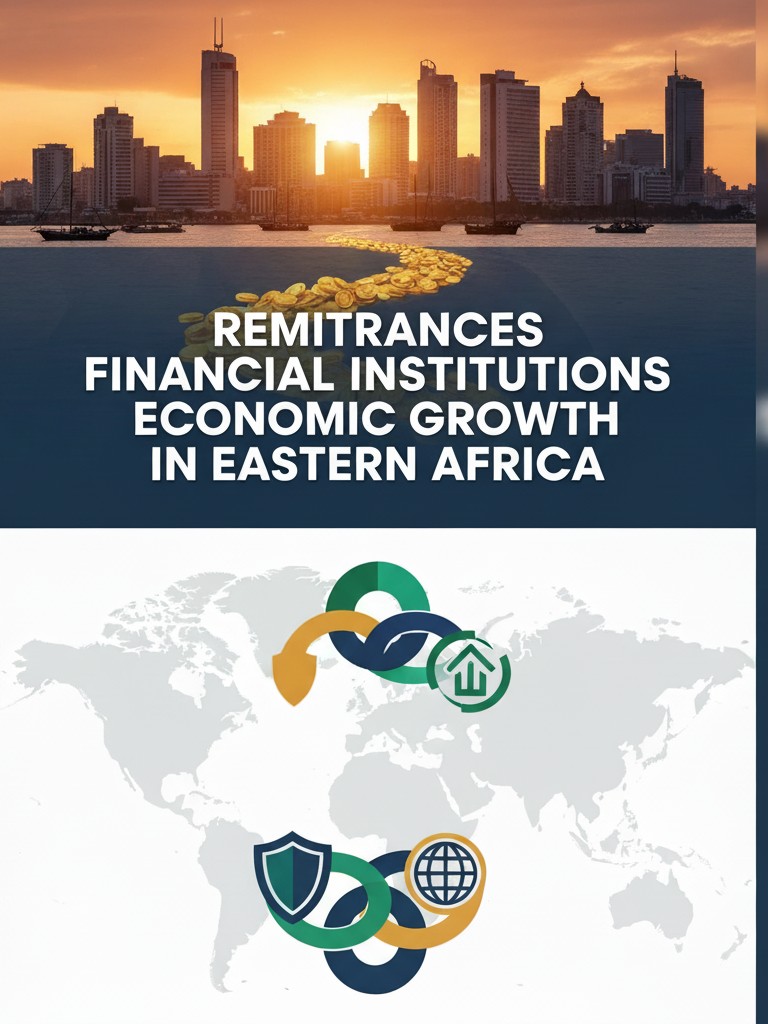
This paper investigates remittances, financial Institutions and economic growth in Eastern Africa, focusing on the interaction between remittances and financial institutions, as well as the role of institutional quality and governance. Remittances are a crucial financial flow for many developing economies, and their potential to contribute to economic growth is significant.
Trade Openness and Economic Growth in Rwanda
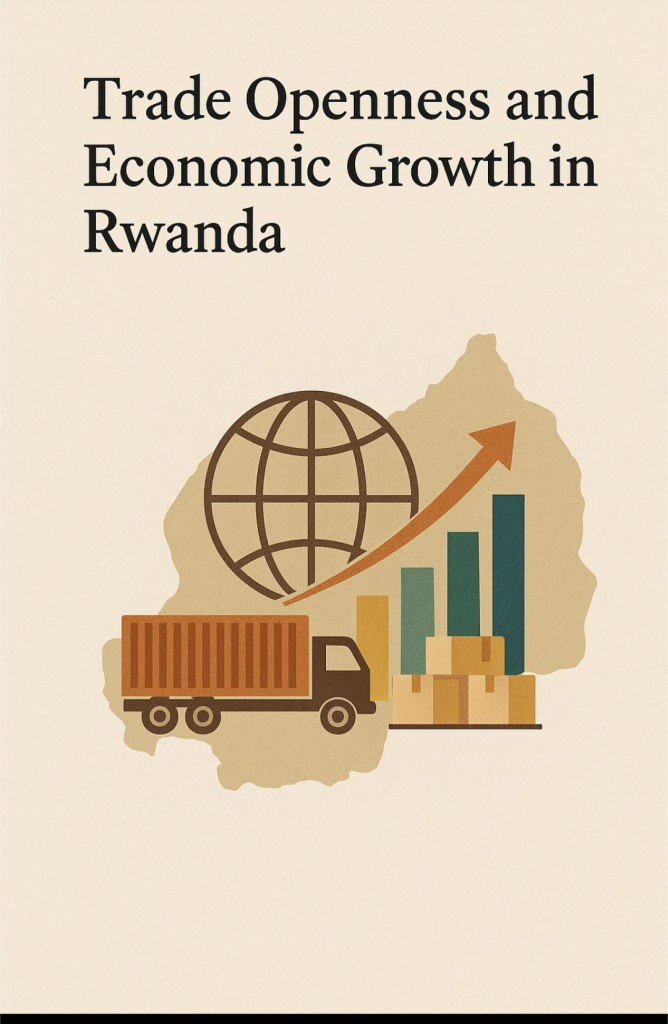
This paper empirically examines the impact of trade openness on the economic growth in Rwanda for the period between 1980 and 2022. The analytical framework of this study is embedded in the theoretical and empirical debate between three dominant theoretical approaches about trade openness and economic growth: the Ricardian- Hecksher-Ohlin trade Theory and Endogenous Growth Theories.
Remittances, financial development and economic growth in Africa
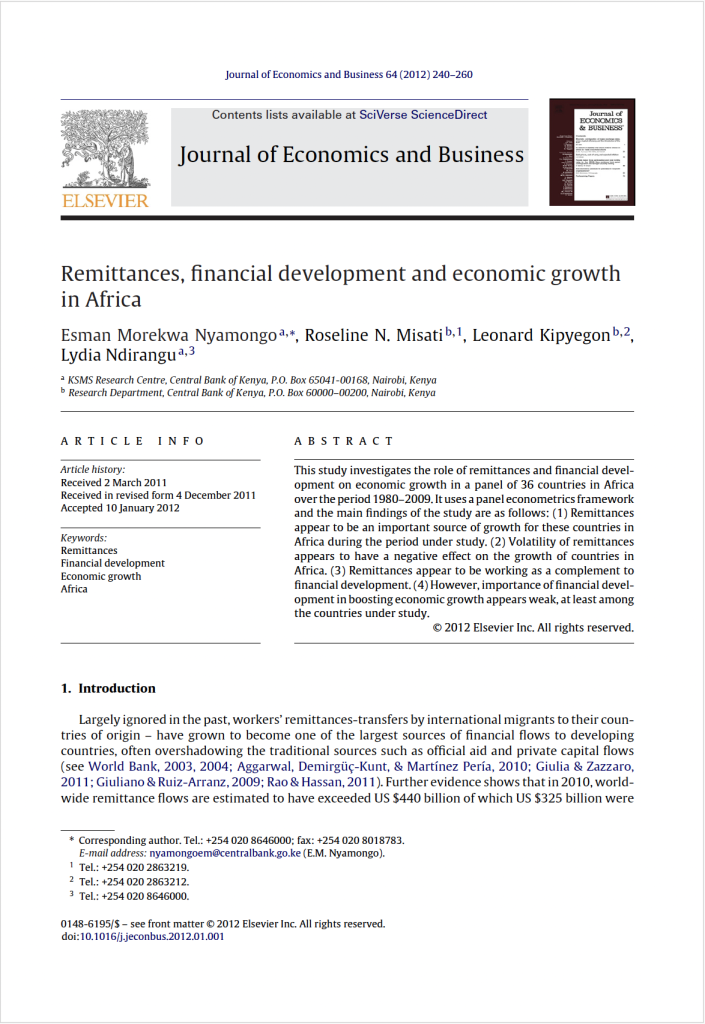
This study investigates the role of remittances and financial development on economic growth in a panel of 36 countries in Africa over the period 1980–2009. It uses a panel econometrics framework and the main findings of the study are as follows: (1) Remittances appear to be an important source of growth for these countries in Africa during the period under study. (2) Volatility of remittances appears to have a negative effect on the growth of countries in Africa.
Remittance Inflows and Economic Growth in Rwanda
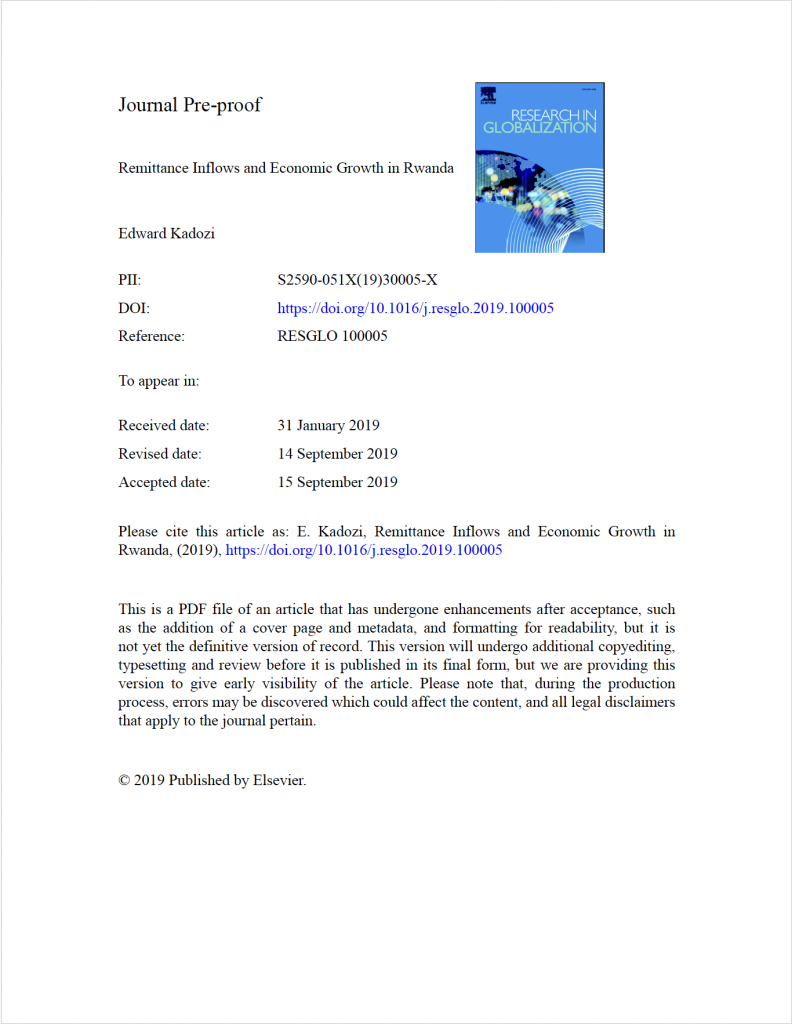
This paper examines the impact of remittance inflows on economic growth in Sub-Saharan Africa (SSA) countries and Rwanda in particular for the period between 1980 and 2014. It explores whether the growth impact of remittances is conditional on the institutional and development factors in SSA countries. The analytical framework of this study is embedded in the debate between two dominant theoretical approaches about the growth effect of remittances; the national accounts and endogenous growth models.
Disability-Inclusive Public Procurement: Promoting Accessibility of Persons with Disability in WASH Facilities
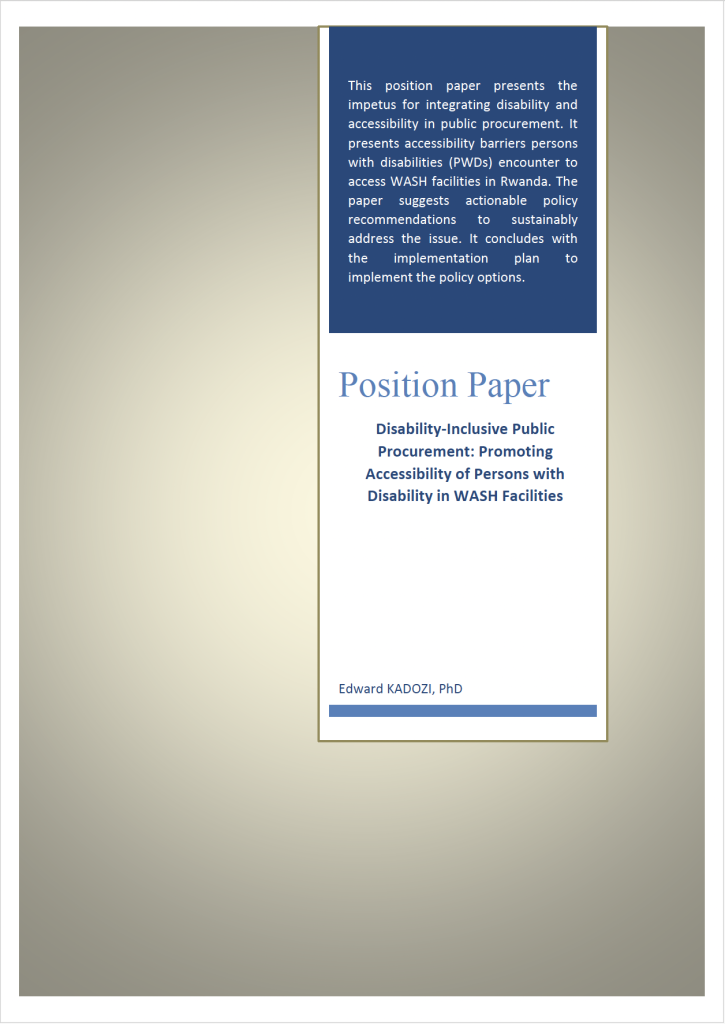
Making AfCFTA Protocol work for Women and Youth in Trade
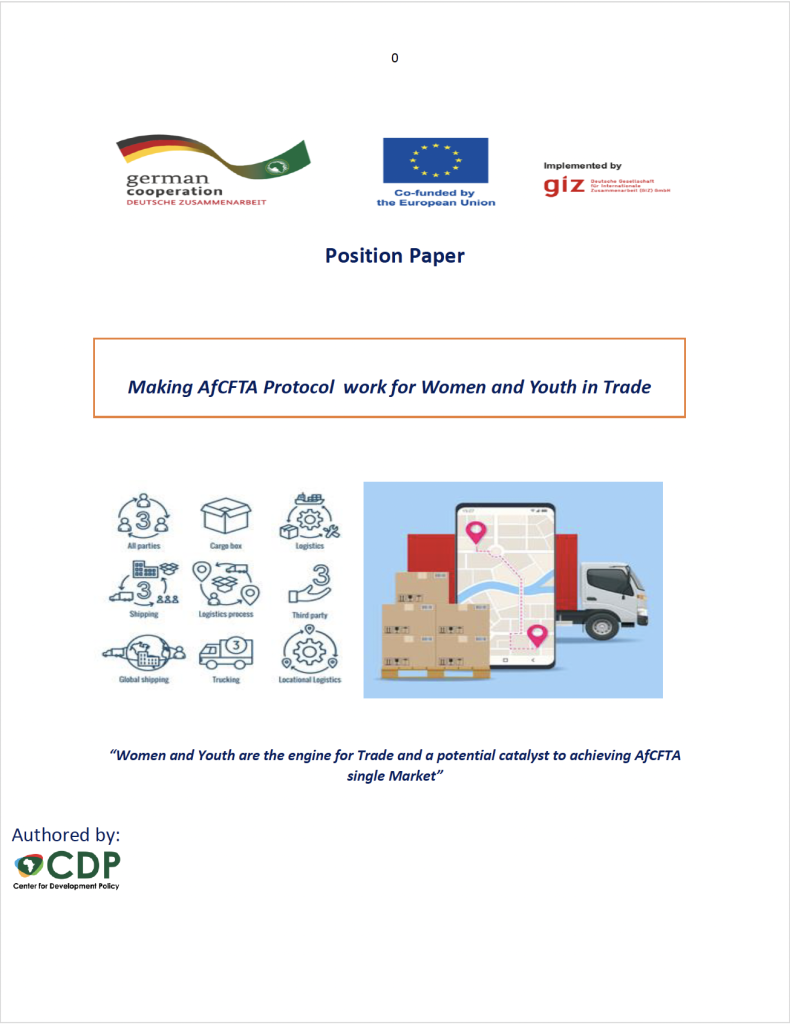
This position paper advances a critical impetus for integrating the needs and potentials of women and youth in trade for Rwanda team of negotiation during upcoming negotiations for the women and youth Protocol under AfCFTA Phase II&III. Women and youth-led businesses in Africa, and Rwanda in particular play a significant role in economic transformation and poverty reduction.
Impact of Remittances on Economic Growth in Developing Countries: The Role of Openness
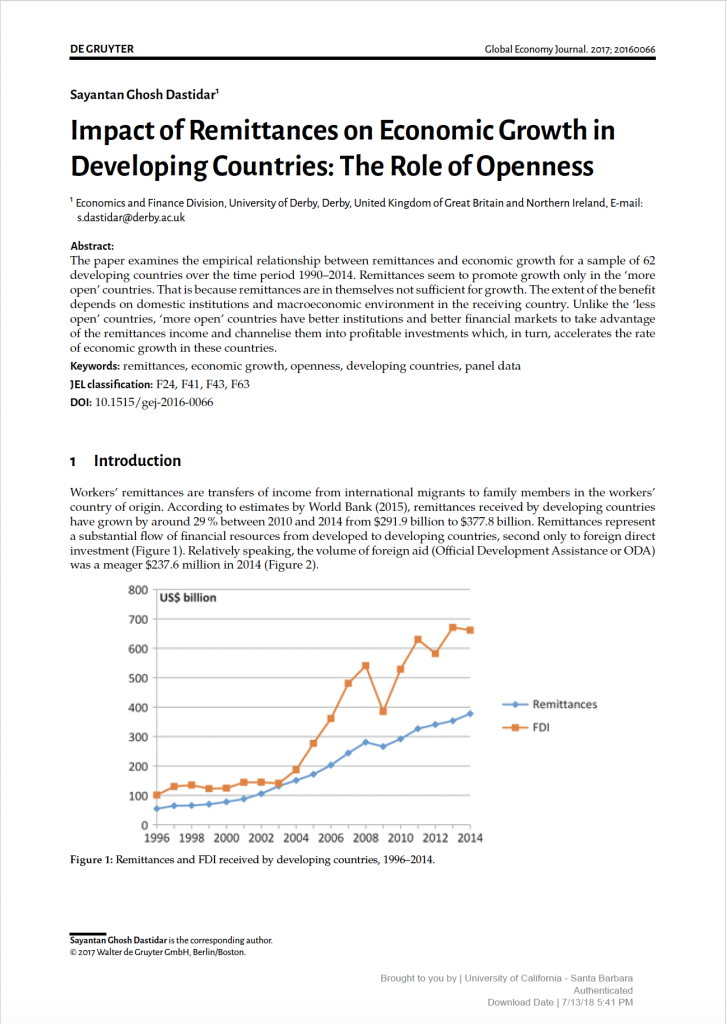
The paper examines the empirical relationship between remittances and economic growth for a sample of 62 developing countries over the time period 1990–2014. Remittances seem to promote growth only in the ‘more open’ countries. That is because remittances are in themselves not sufficient for growth. The extent of the benefit depends on domestic institutions and macroeconomic environment in the receiving country.
Study on Multiplier Effecta of Social Protection Expenditure in Rwanda
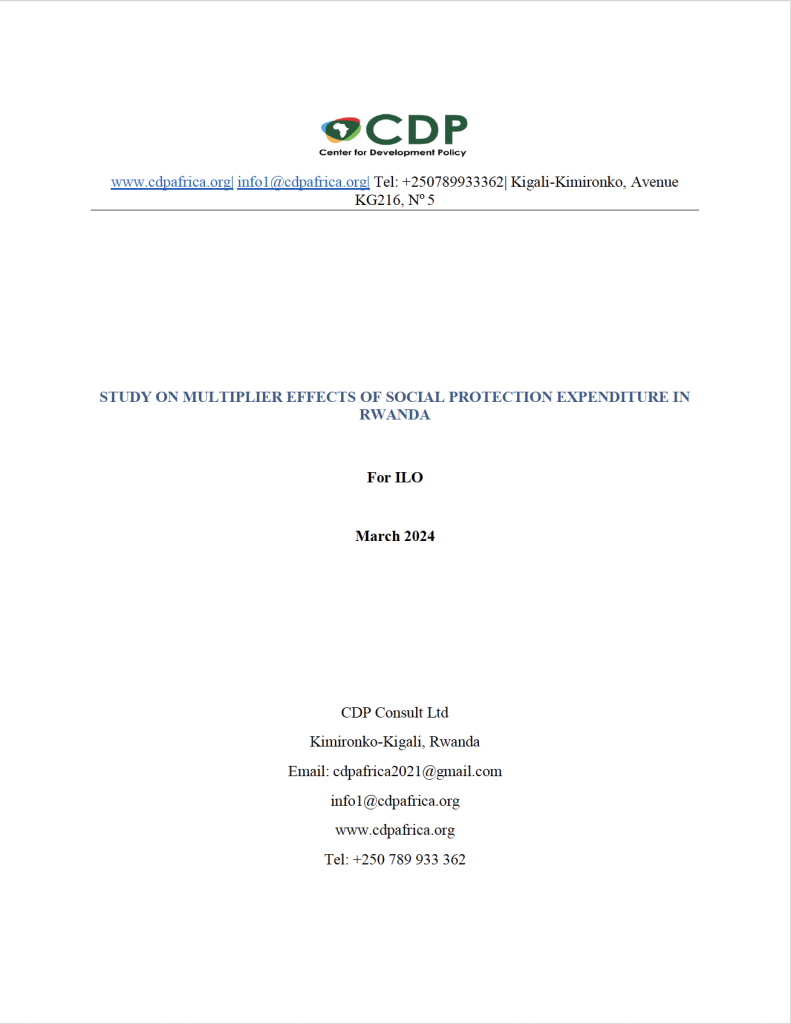
The Social Security (Minimum Standards) Convention No. 102 adopted in 1952 established a worldwide-agreed minimum standards for social security relating to medical care, sickness, unemployment, old-age, employment injury, family, maternity, invalidity and survivors’ benefits. The Convention stipulates guidelines for countries to achieve the tripartite objective of raising the percentage of the population covered by social protection schemes, level of minimum benefits to be secured to protect persons and streamlining conditions and period of entitlement to benefits (ILO, 1952).
